Why should heart patients limit their water intake?
Why do heart disease patients limit their water intake? This statement is accurate, first of all, heart disease is a large category. Is it necessary to restrict water intake in all cases of heart disease, which is obviously not true. The need to restrict water intake refers to cases of heart failure.

Why do patients with heart failure need to limit their water intake?
- Because water stays in the body and can't drain out in heart failure patients, it causes pitting edema in the legs, and in more severe cases, ascites, pleural fluid, etc. may occur. This is what our doctors callwater retention。
- People with heart failure already have a lot of water in their bodies and can't get it out, so of course they have to limit their water intake. If you don't restrict it, isn't it aggravating the condition?
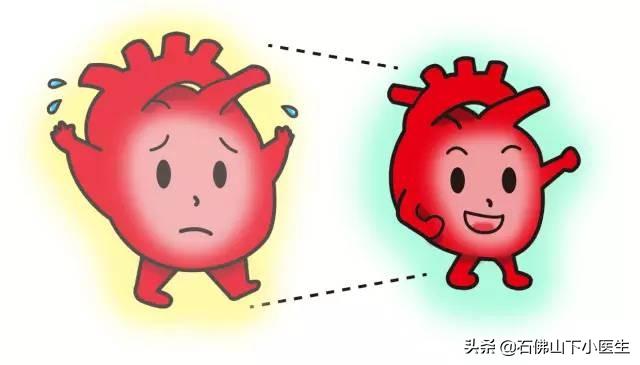
Why water retention occurs in the body of heart failure patients
1. What is heart failure?
- Heart failure is the final stage of various heart diseases. A normal heart is like a pump that pumps blood out of the heart every now and then. Heart failure, on the other hand, is a decrease in this ability to eject blood.
2. What are the consequences of a decrease in the heart's ability to eject blood?
- When the heart's ability to eject blood wants to decrease, all the organs of the body become ischemic. But some of the organs of the body are very important such asHeart and brain., some are relatively unimportant and can be prioritized to be sacrificed. The kidney is one such organ.
- When heart failure occurs, the heart ejects less blood to the outside world, and the blood supply to the kidneys can only be reduced in order to ensure a normal blood supply to the heart and brain.
- The kidneys act like a filtering net to filter out the waste inside the blood. The blood flows through the kidneys and filters out the metabolic wastes, and these filtered metabolic wastes are urine. When the blood supply to the kidneys decreases, naturally urine decreases. On the other hand, as the blood supply to the kidneys decreases, the kidneys think that the body is short of blood (in fact, it is not short of blood, it is just that the heart can not drain it out), and secrete a hormone called aldosterone, and this aldosterone's function is to reduce the amount of water that is excreted from the kidneys, and this results in water retention.
- On the other hand, people with heart failure also secrete another hormone calledantidiuretic hormone.. As the name suggests, antidiuretic also means not diuretic. Therefore, antidiuretic hormone also works by reducing water excretion, causing water retention in the body.
- Therefore.Aldosterone and antidiuretic hormoneYou could say it's good intentions.
To summarize, the water in the body of a heart failure patient would not have been able to drain and stagnate in the body, so it is natural to need to limit the water consumption, or else it is going to add to the problem.
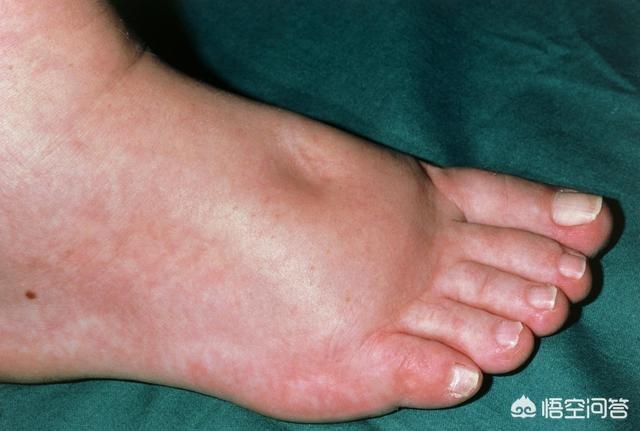
However, it is important to note that should all patients with heart failure, regardless of severity, be on strict water restrictions?
This is also clearly unscientific. There are also mild and severe forms of heart failure. Unprincipled, eyebrow-raising restrictions on water intake are unscientific and cruel to the patient.
1. Situations that do not require water restriction
- For example, patients with very mild symptoms of stable heart failure, usually normal life can be governed, and there is no lower extremity edema, chest tightness and these conditions.
- In this case, I don't think you need to be too intentional about controlling your drinking. But you shouldn't drink too much at once either.
2. Circumstances requiring restriction of drinking water
- The symptoms of heart failure were severe, physical activity was significantly limited, and wheezing occurred even with movement. And there is edema in both lower extremities and a diuretic is being taken. In this case, it may be necessary to restrict water intake.

I am adhere to the medical science and popularization of Chen Dafu, to my answer to the satisfaction, please give me praise and attention, your support, is my creation of the greatest power.
Often when checking the room, I can meet all kinds of heart disease patients, and sometimes I will ask a few more questions to the serious heart failure: how much water I drank today, how much I urinated. Even for the more serious ones, it is necessary to record in detail the amount of in and out, that is, to record how much to eat and drink, how much to urinate and defecate.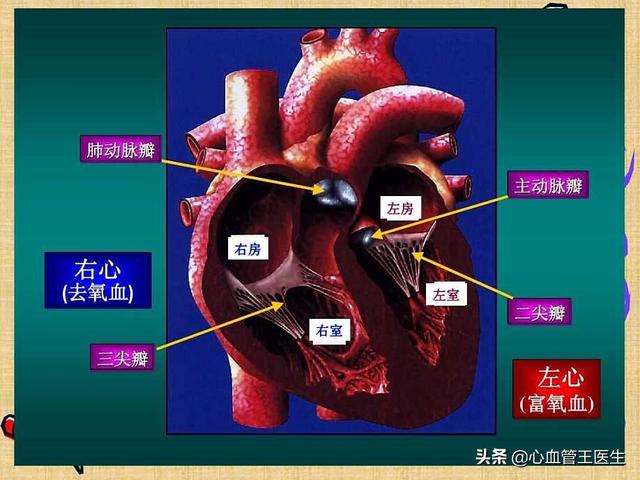
Sometimes people without heart failure will ask: Doctor, why don't you ask me how much I ate, drank and urinated? Why don't you pay attention to me?
It's not really like that.
Because not all heart attacks have to be overdone by asking how much you drank and how much you peed.
I. There are many kinds of heart disease
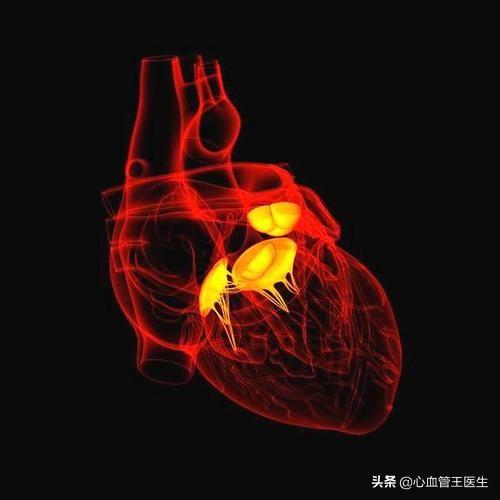
Heart disease is a broad concept, not a disease name, and heart-related diseases can be called heart disease. The most common types of heart disease are coronary heart disease (CHD) which is cardiovascular in nature, arrhythmia which is heart beat related, valvular heart disease (VHD) which is heart valve related, and cardiomyopathy (CMD) which is heart muscle related.
Specific coronary heart disease is divided into exertional angina, unstable angina, myocardial infarction, asymptomatic coronary heart disease, heart failure, etc.; arrhythmia is divided into rapid and chronic arrhythmia, rapid arrhythmia includes atrial fibrillation, atrial tachycardia, ventricular tachycardia, sinus tachycardia, ventricular fibrillation and so on; chronic arrhythmia includes sinus disease, atrioventricular block, sinus bradycardia, and so on; heart valve disease includes primary, secondary, geriatric, rheumatism and so on. Cardiomyopathy is divided into alcoholic cardiomyopathy, ischemic cardiomyopathy, dilated cardiomyopathy, hypertrophic cardiomyopathy and so on.
Second, not all heart disease is concerned about drinking water and urinary output
Most heart conditions such as coronary artery disease, arrhythmias, early stages of cardiomyopathy, early stages of valvular disease, and so on don't require attention to water drinking and urine output.
Only when cardiac insufficiency occurs, or heart failure occurs, should you be concerned about the amount of water you drink and the amount of urine you urinate.
III. What is heart failure

Heart failure is not strictly a name for a heart condition, but rather a syndrome, which is a combined result of various heart conditions.
Most heart diseases, if not treated aggressively and formally, can progress to heart failure.
For example, chronic uncontrolled high blood pressure leads to an enlarged heart and heart failure;
For example, irregular treatment of coronary heart disease and prolonged ischemia can lead to heart enlargement and heart failure;
For example, if the myocardial infarction is large, or if the blood vessel is not opened in time when the doctor is late to the clinic, it can lead to enlargement of the heart and heart failure;
Various arrhythmias, for example, can also lead to an enlarged heart and heart failure in the long term if left unchecked;
For example, progressive heart valve disease, such as various cardiomyopathies, and so on can progress to heart failure.
Heart failure simply means that when the heart enlarges, the heart doesn't function as well as it should, and the heart fails.
The most typical symptoms of heart failure are chest tightness and breathlessness, dyspnea, swelling of the lower extremities, abdominal distension and other manifestations.
Chronic heart failure has a five-year mortality rate of 50% and severe heart failure has a one-year mortality rate of 50%.
IV. Why heart failure should be concerned about water drinking and urine output
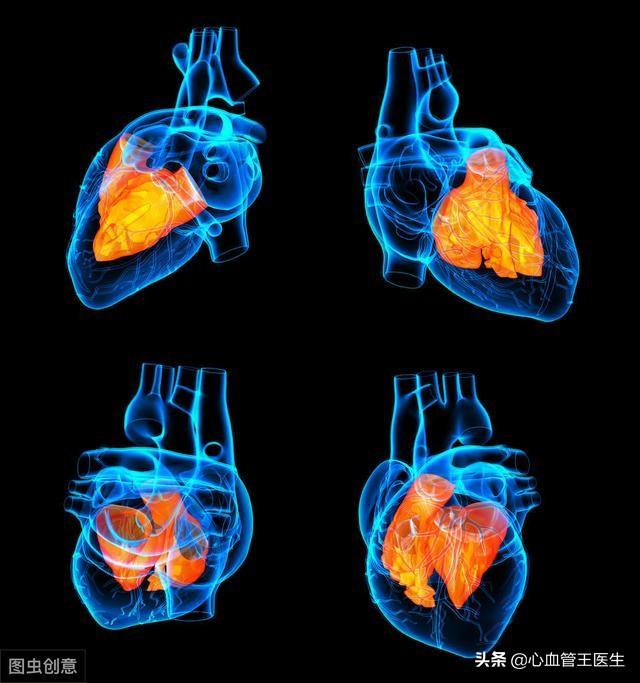
Heart failure will be chest tightness and breathlessness, dyspnea, can not lie down to rest, swelling of the lower limbs and other manifestations, a major reason is that the body has more water, the total water intake more than the water discharged, then naturally remain in the body of water more and more. These water need the heart to metabolize, so it will increase the burden on the heart. The heart itself is already failing, this time to increase the heart workload, undoubtedly worse, more and more water, naturally induced heart failure aggravation. Even induced acute heart failure, leading to death.
So for heart failure, especially severe heart failure patients, to pay attention to the balance of access, that is, the basic balance of eating and drinking and pooping and urinating and sweat evaporation, only balance can ensure that the body water is relatively measured, will not suddenly increase the burden on the heart, to ensure that the heart is stable and does not induce heart failure.
V. How to Limit Drinking and Keep an Eye on Urine Volume
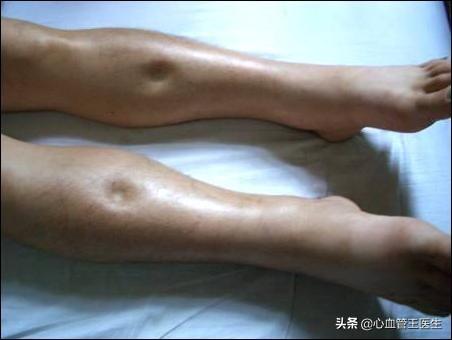
The most accurate way is to weigh, that is, weighing every day, to see if there is no heavier, if heavier means that the body has more water, need to increase diuretics, more row a little, and appropriate to drink less, reduce intake.
But it does not mean that people with heart failure should limit their water intake, at the very least, they should ensure that the body is hydrated with the most basic life-supporting water, rather than being afraid to drink it, and if the water is not properly hydrated, new problems will arise. We just don't drink more water on purpose.
Of course, people are not accustomed to measuring the weight, simply look at the amount of urine, a small amount of urine, indicating that the body is too much water, then you have to add diuretics, or reduce the appropriate amount of water to drink.
If you find that your feet are swollen, or your lower limbs are swollen, it means that there is already a lot of water in your body, and you must seek medical attention to have your treatment adjusted by a medical professional.
In short, only people with heart failure need to pay special attention to water drinking and urine output. At the same time, it is not necessary for heart failure patients to drink less water, as long as they do not drink too much water and are careful to measure their weight or observe their urine output.
The heat of the summer, the emergency came to a coma moncler outlet online, according to the family oral, moncler outlet online has always had a heart attack, the morning after practicing tai chi, feel thirsty on the fierce drink a cup of water, suddenly feel chest tightness panic, sitting breathing, sweating coma past, fortunately sent to the hospital in a timely manner to rescue, only to escape from the life. Water is the source of life in nature, but also induced heart disease patients moncler outlet online coma culprits. Next, the author will talk about the relationship between heart disease and restriction of drinking water.
Definition of heart disease
Heart disease is a broad concept, a collective term for diseases related to the heart, including congenital heart disease, hypertensive heart disease, coronary heart disease, rheumatic heart disease, myocarditis, and so on. The most common are arrhythmias related to heart beat, coronary heart disease related to cardiovascular disease, cardiomyopathy related to heart muscle, and valvular heart disease related to heart valves.

Should all heart patients limit their water intake?
Only patients with heart failure need to limit their water intake. A normal heart is like a pump that regularly pumps blood out of the heart, however most heart disease patients may eventually develop heart failure if they do not actively cooperate with treatment. Once the heart fails, the patient will experience chest tightness, dyspnea, edema of the lower extremities, inability to lie down, and other related symptoms caused by more water in the body. If they also drink a lot of water, it will add to the burden on the heart, leading to aggravation of heart failure or even death. Therefore, heart failure patients should pay attention to ensure the balance between the amount of water out and in, so as not to suddenly increase the burden on the heart and ensure the stability of the heart.

What should I be aware of after restricting my water intake?
If you notice abnormalities such as greater weight fluctuation, less urine, swelling of the lower limbs, etc., it means that there is more water in the body, and it is recommended to seek medical attention in time to adjust the treatment program.
concluding remarks
In summary, not all heart disease patients must limit the drinking water, but heart failure patients must limit the drinking of water, and pay attention to the way to drink water, should not be too fierce, should be a small number of times, each time between two to three hours, do not drink hot water, cold water or even ice water, or really very "sad" Oh!
bibliography
[1] Cheng Leilei. Heart failure patients drink too much water to watch out for heart "strike", Family Doctor News, 2017-10-16.
First of all, to clarify.Not all patients with heart disease need to restrict their water intake. Only patients who have developed heart failure need to restrict their water intake, theDoctors will be very concerned about how much water these patients drink every day, how much fluid they are given, whether there is any increase in the amount of urine, whether they have lost weight, and so on. Today Dr. Xu will talk to you in detail about this aspect.
What is heart failure?
Heart failure occurs when the blood pumped by the heart is no longer sufficient to meet the needs of the body's tissues and organs and manifests itself in breathlessness, limited mobility, and fluid retention (swelling, hydrothorax, etc.).
What are the causes of heart failure?
At present, the main causes of heart failure are hypertension, coronary heart disease, diabetes, cardiomyopathy, myocarditis, valvular disease, atrial fibrillation, tachycardia, hyperthyroidism, uremia, and heavy alcohol consumption. Therefore, people with these conditions must receive regular treatment and undergo regular review to reduce or avoid the risk of heart failure in the future.
Why should patients with heart failure limit their water intake?
Restricting water intake is very important in the treatment of heart failure. Because heart function declines in heart failure, too much fluid intake increases the burden on the heart, which is like adding insult to injury for an already tired heart and can lead to further deterioration of heart function.
Limit the intake of liquid, but also need to increase the discharge of liquid (mainly by increasing the amount of urine to achieve), and out of the volume should be greater than the amount of input, so that the body's blood volume is reduced, the burden on the heart will be reduced, cardiac function has been improved, the patient's edema in order to subside, chest tightness and shortness of breath can be gradually alleviated symptoms.
Focus on health, focus on cardiovascular Dr. Xu!
Why do heart patients need to limit their water intake? This topic involves a bit too many patients. In fact, not all heart disease patients need to limit their water intake, but only some of the heart disease patients need to limit their water intake, especially if their heart failure is more serious, and they should pay more attention to avoid excessive water intake. To say that all heart patients need to limit their water intake is actually misleading to many people.
Heart patients who limit their water intake are mainly people with heart disease who have decreased heart function.

We say on a daily basis that drinking more water properly without any special restrictions has a very good effect on the body, and doctors encourage many people, on a daily basis, to drink more water.
And heart disease is the general term for all people with bad hearts, which includes cardiovascular diseases, such as coronary heart disease; there are also myocardial diseases, including myocarditis, etc.; and then arrhythmia-type diseases, including atrial fibrillation and so on. There is also heart valve disease, dilated heart disease and so on.
These cardiac emergencies, not all of which are very serious, such as premature ventricular contractions and arrhythmias in young people, can be called heart attacks when they are asymptomatic, although they are an abnormal state, and most of them at this time do not require treatment or special contraindications to hydration.
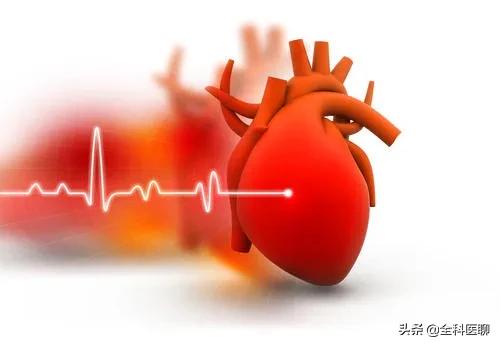
But in the event of a decline in heart function, especially when the heart is impaired and heart failure is present, then care should be taken to avoid excessive drinking.
Let's talk about the issue of heart failure.
Heart failure is actually a decrease in the capacity of the heart due to various reasons, which is manifested in a decrease in the systolic and diastolic functions of the heart.
The decline in heart function brings about a decrease in the heart's ability to contract, which results in a decrease in the heart's ability to supply blood, and the arteries become underperfused with blood. At the same time, the decline in the diastolic capacity of the heart brings about a decrease in the amount of blood returned to the heart, and the venous system fills up with blood.
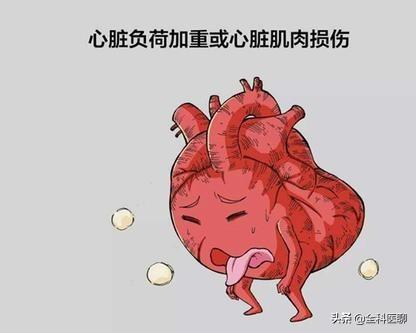
For a long time, it will bring obvious symptoms of heart failure, such as a little activity or labor that is to feel panic, chest tightness, shortness of breath; sometimes lying down after the suffocation is strong, lying down after coughing, the patient does not appear when standing or sitting wheezing or coughing to reduce; sometimes appear moody, anxiety or have a sense of fear. And one of the most important signs is the appearance of body edema.
So, when heart failure, patients should reduce water intake, especially when these patients infusion, not to enter too much fluid too fast, will aggravate the occurrence of heart failure. Hypertension, coronary artery disease, myocarditis, dilated cardiomyopathy, valvular disease, etc., is a high-risk group of heart failure, these people should pay attention to fluid intake when infusion.
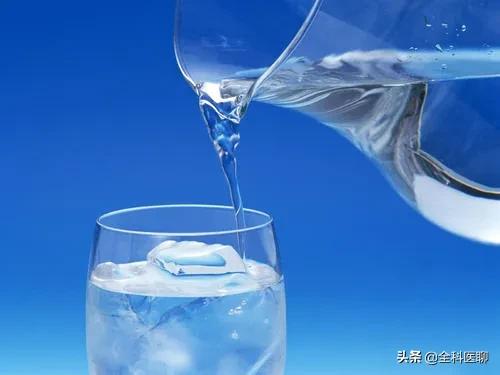
Why does heart failure require water restriction?
Daily normal people, the daily intake of water and the discharge of water is balanced, intake of water more, the elimination of water will also increase accordingly.
If the patient with heart failure, due to the body's circulatory ability to decline, blood is easy to accumulate in the veins, so that if the intake of a large amount of water, can not be metabolized through the effective circulation, it will cause the water intake is greater than the elimination of the heart failure will be aggravated, too much water will cause the body edema appear, will cause the symptoms of heart failure significantly aggravated.
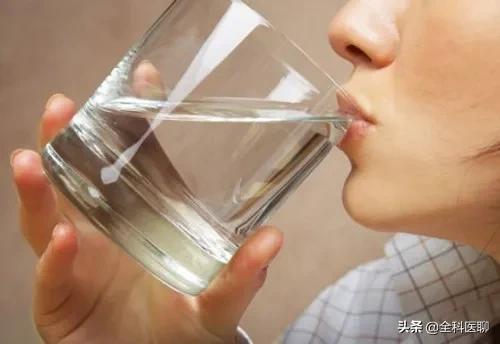
In addition, for heart failure patients are prone to "water and sodium retention", sodium restriction, there will be hyponatremia, and the body's water retention is the need for sodium to play a role in water storage, sodium reduction, the body needs water should also be reduced to take too much water, also aggravate heart failure.
How can people with heart disease prevent a decline in heart function and avoid heart failure?
First of all, almost all people with a bad heart have the possibility of heart failure occurring, which is why it is important to be proactive in preventing, checking and treating heart disease when it occurs.

Furthermore, the ability to participate in exercise. Many heart diseases appear, in rest and exercise should have full awareness, neither can not exercise at all, more do not exercise too much, bring the heart burden increased, so you need to combine their own situation, as far as possible to exercise, can improve physical fitness, improve cardiac function.
Furthermore, for diet, heart patients should be more actively involved in dietary management, low-salt, low-fat and low-oil diets, avoiding overeating, balanced diets, and moderately increasing the intake of vegetables, fruits, soy products and so on. At the same time, the diet should be regular, avoid overeating.
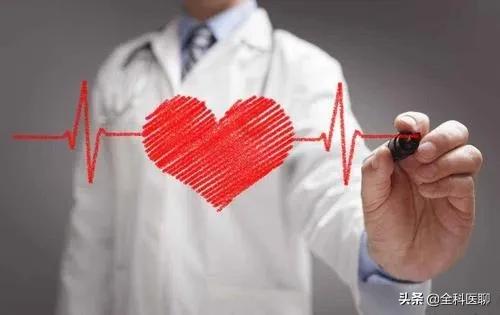
Further, with regard to hydration, except for patients with heart failure, everyone else should be adequately hydrated, but not to excess; an intake of 1,500-2,000 ml is usually sufficient.
Furthermore, keep a regular routine and avoid staying up late for long periods of time. Heart disease, in particular, is very important for adequate and regular rest.
Furthermore, good mood is an important part of heart disease control, do not be too angry, nervous, avoid long-term stress increase, learn to release bad emotions.

To summarize, for heart patients, if there is a decline in cardiac function, heart failure, you should pay attention to restricting drinking water, and even need to record the amount of in and out of the water, which are necessary for the prevention and treatment of heart failure, but not all cardiac patients need to restrict drinking water. It is important for heart patients to make sure that they have good disease control on a daily basis to prevent heart failure from occurring.
I'm @GeneralPracticeMedChat, it's not easy to code, I hope it's helpful and thank you for your supportive attention!
Why do heart patients need to restrict drinking water, the most common heart disease restriction diet is due to heart failure caused by poor cardiac function appear circulating blood flow is insufficient, appear lower extremity edema chest tightness and shortness of breath, out of the chest tightness and shortness of breath, the liquid a lot of later can not be discharged, the heart's burden increases will be exacerbated, embodiment of all happened. Diseases that cause heart failure may be caused by the following reasons.

● Infections, long-term infections inducing lung infections, pulmonary heart disease with pulmonary stasis and decreased cardiac function.
● Excessive fluid entry, especially in some intravenous infusions, fluid too quickly will increase the circulating blood volume of blood volume filling overfilled, the amount of fluid can not be drained, go to induce its own absorption.
● Arrhythmias, the most serious arrhythmias, ventricular premature, atrial premature, atrial fibrillation, long-term arrhythmias will increase the decline in cardiac function, bleeding double lower extremity edema shortness of breath.
High blood pressure, long-term high blood pressure will cause the heart to become fat, and then the enlargement of the atria, the change in the structure of the ventricles will affect the changes in ventricular inlet and outlet, affecting the reduction of cardiac function.
Why do patients with heart failure limit their water intake?
● A large amount of fluid into the body, through the blood circulation disorders, especially lung function circulation disorders, the pressure is relatively high, there will be hypertrophy of the right ventricle, both to lead to the decline in sexual function appeared double lower limb edema, in addition to calculating the amount of intake needs to calculate the amount of in and out of the patient if the amount of fluid into the patient is greater than the amount of out of the patient, indicating that the fluid can not be drained out of the body, at this time you need to control the amount of water into the body.
● This is the reason why heart failure patients must have a 24-hour input based on fluid intake as well as an in/out assessment, and the ideal state is one where the amount going in is less than the amount going out. This state basically keeps the body fluids balanced and reduces fluid cholera.
In addition to a 24-hour volume count, patients need to monitor daily weight changes. Weight usually increases rapidly when fluids are stored, so it is best to keep the weight stable or lighter than usual.
Heart failure is a more complex condition, need to standardize long-term drug treatment, regular review of indicators and changes in the amount of access, renal function ion liver function monitoring, but also need to monitor the changes in blood pressure, control hypertension, high blood glucose and high blood fat indicators, regular review of a needle, according to the indicators to adjust the amount of drugs, timely review of indicators to improve the prognosis of the disease.
Why should heart patients limit their water intake?
There are many types of heart disease, including coronary heart disease, coronary artery disease, cardiomyopathy, arrhythmia, infective endocarditis, myocarditis, etc., regardless of which disease develops to the end stage will lead to a decline in cardiac function, the emergence of heart failure, at this time the patient needs to varying degrees of restriction of water intake, the reason for this?
What is heart failure? Heart failure, short for heart failure or heart pump failure, is a decline in the pumping function of the heart, which is characterized by the heart's inability to pump enough blood per unit of time to meet the body's needs.
A series of neurohormonal regulatory changes occur in the body at the time of heart failure, leading to activation of the renin-angiotensin-aldosterone system and sodium retention in the body.
Water and sodium retention leads to an increase in blood volume and a further increase in cardiac preload, which contradicts the principles of heart failure treatment.
Heart failure indicates that the heart is overburdened, and at this point we need to reduce the burden on the heart, both in terms of preload (volume load) and afterload (peripheral vascular resistance).
If we don't restrict water intake in heart failure, it is not favorable to the treatment of heart failure due to the body's own regulatory mechanisms that lead to excessive water storage in the body, increasing blood volume and the burden on the heart.
In summary, cardiac patients need to limit their water intake when they develop heart failure, as too much water can worsen it.

Heart disease is a collective term for all heart diseases, I guess many heart disease patients are still not clear which heart disease need to limit the drinking water, but in the heart disease there is indeed a disease that needs to limit the drinking water, today we go into the heart disease, to see which kind of heart disease need to limit the drinking water?
I. Not all heart disease requires water restriction
In fact, for the vast majority of heart disease, there is no strict restriction on water diversion requirements, especially arrhythmia and many patients with coronary artery disease. However, for patients with acute heart failure, it is necessary to strictly limit the drinking water, because if you do not limit the drinking water, drinking water after a large amount of water through digestion and absorption will enter the circulatory system, which will lead to volume load aggravation, which in turn causes cardiac load aggravation, resulting in patients with heart failure aggravation. So from a strict point of view, heart rate patients need to limit water.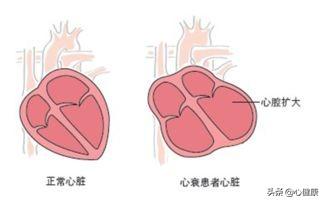
Second, not all heart failure requires strict water restriction
In fact, many patients for heart failure strict water restriction is a misunderstanding, that all heart rate need strict control of water. However, the guidelines are not so stipulated and restricted, the guidelines are only for patients with acute heart failure, it is recommended to carry out strict water restriction, but there is no strict water restriction requirements and recommendations for patients with stable heart failure. But for patients with stable heart failure, they still need to pay attention to water intake, or else their heart failure will easily recur.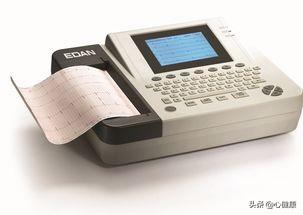
Third, water restriction is just a point of attention needed for heart failure patients
In fact, for patients with heart failure, water restriction is not the only thing that can be done. Water restriction is only one of the aspects that heart failure patients need to pay attention to, there are many other things that need to be paid attention to as well. For example, to avoid cold and labor, such as avoiding infection, such as strict adherence to medication and so on.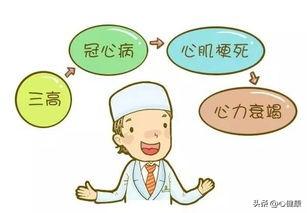
While the vast majority of heart failure patients are on long-term medication for life with heart failure, attention to lifestyle will reduce the incidence of heart failure and hospitalizations, which in turn will help us improve our quality of life. See what I mean? Follow us to get daily updates on science tweeted to you.
Indeed, when our patients are admitted to the hospital, they are usually prescribed: to keep track of in and out, as well as: to measure their weight.
Literally, out: is generally the amount of urine that is excreted, sometimes counted when there is loose stool. In: the amount of fluid that enters the body. Including oral water, milk, porridge, intravenous fluids, etc. are all counted. We will ask the patient to use a measuring cylinder or other container with a scale to measure the amount of fluid before drinking or after urinating. This will be written down on a piece of paper:
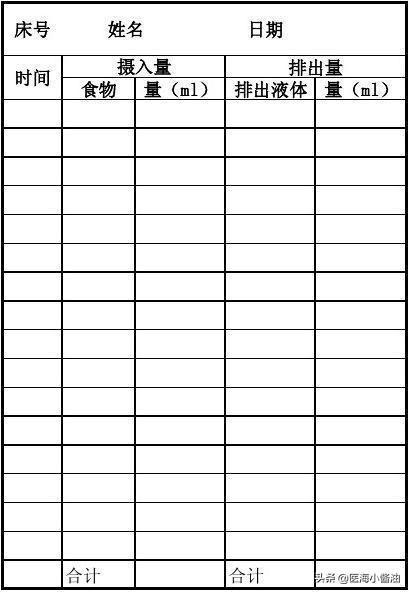
Keeping track of in and out is something that happens in other departments, but the only ones that really take in and out to heart as a guide to treatment are cardiac surgery and cardiology.
So why are we so concerned about a patient's access?
First of all, to put it simply, the water you drink or the urine you excrete affects the volume of blood in the blood vessels. Drinking water, through the intestinal absorption, into the blood, resulting in an increase in blood volume; blood into the kidneys, through the filtration effect of the kidneys, filtering out part of the water, dissolved in a variety of metabolic wastes, the formation of urine, the volume of blood will be correspondingly reduced. For a normal person, the heart function has a good reserve, blood volume more or less does not matter. But for a patient whose heart function is not good, the heart reserve is very small, and it will be very sensitive to the change of blood volume. This is reflected in fluctuations in blood pressure, changes in heart rate, and sometimes even arrhythmia. Therefore, when we are checking the room, we will tell you to remember the correct amount of blood in and out of the room, do not be perfunctory. Then what do we rely on to determine whether the patient's intake and output are accurate? The second medical advice: weighing. It is reasonable to say that if a person's outflow > inflow for a long period of time, he or she will definitely lose weight. Once before, a patient was able to enter and exit the negative balance of about 500 ml every time he checked in and out for a week, but he weighed himself every day and did not lose any significant weight, and even weighed 2 pounds more than when he was admitted to the hospital a week later. On further questioning, the fluid measurement was done by eye estimation, not using a gauge at all, and the error was so large as to be unbelievable, which made the director half dead.
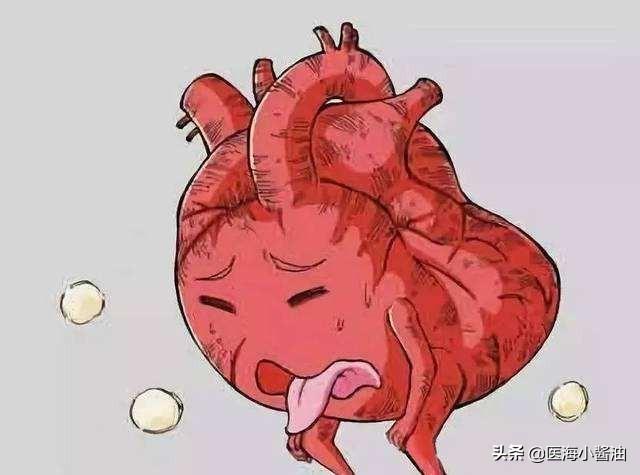
So what is the best level of access to maintain?
Truth be told, water, as the source of life, has an irreplaceable role in the body's metabolism. Too little water intake is not enough to metabolize the body's wastes, and it also lowers blood pressure due to reduced blood volume. Therefore, it is necessary to avoid a misunderstanding thatDrinking water should never be as little as possibleWe usually think that the daily water intake that can satisfy a person's normal life is 30~40ml/kg, and if an ordinary person's normal body weight is about 60kg, the water intake in a day is 1800~2400ml. because most of the hospitalized patients do not have a lot of activities, and the amount of evaporation through sweat is less than usual, so usually we take the lower limit of the value to fluctuate, 1500~2000ml. and the amount of out. is adjusted according to the patient's own condition. If the patient is acute cardiac insufficiency, the heart is in overload state, diuresis must be fast, a day of negative balance of 1000ml (urine volume of about 3000ml) are possible. For patients with chronic cardiac insufficiency, the heart has been relatively adapted to the current work intensity, gradual dehydration, -300~-500ml per day, more conducive to blood pressure stabilization. As for patients with coronary heart disease with cardiac insufficiency, care needs to be taken not to focus solely on negative balance to prevent acute infarction caused by excessive blood viscosity.
I'm Soy Sauce, a cardiac surgeon from a tertiary hospital in Beijing, I love science, welcome to follow or leave a comment, I'll do my best to answer for you!
This is in fact a misunderstanding, not all heart disease patients need to limit the amount of water, only when the heart disease has progressed to the point of "failure", that is, the patient has the so-called "cardiac insufficiency" or "heart failure", it is necessary to limit the amount of water on a daily basis. Only when the heart disease has progressed to the point of "functional failure", that is, the patient has the so-called "cardiac insufficiency" or "heart failure", only then need to carry out a certain degree of restriction on the amount of water consumption;
The survival, development and maintenance of all physiological activities of living organisms require the support of energy and nutrients, but these energies and substances are transported to the various tissues and organs of the body through the flow of blood, and the reason why the blood is able to do uninterruptedly to all parts of the body to transport energy and substances is powered by the heart's constant beat. For normal people, drinking more water to promote a slightly larger blood volume does not matter much, a healthy heart can provide more power for the normal supply of blood through the strong beat;
However, the substantial attenuation of cardiac function renders the heart failure patient simply incapable of taking on a greater load, so reducing water intake to maintain blood volume stabilization is also an intervention to reduce cardiac load and alleviate the condition;
In layman's terms, it is already difficult for the heart of a heart failure patient to maintain the status quo, and it is basically incapable of taking on more load. Therefore, it is important to try to maintain a relative measure of water in the patient's body and avoid too much fluctuation in blood volume in order to ensure that the heart is in a stable state for a longer period of time, thus preventing deterioration of the condition due to a sudden increase in the heart's load, and it is necessary to monitor the heart failure patient's water intake and excretion is necessary.
However, it should be noted that the restriction of drinking water is not not allowed to drink water, water is the source of life, is the maintenance of the body of all physiological activities of the basic material to ensure that, so, water can be drunk, and must be drunk, just can not deliberately drink more, of course, the doctor will inform the patient how to do, how much to eat, how much to drink, and all these can be counted on;
In fact, as stated in the question, the easiest way to monitor the relative measure of hydration is to record the patient's daily water intake and urine output, and to consult the doctor if there is any abnormality;
In addition, some changes in the physical appearance of heart failure patients during the illness are still relatively obvious, such as weight, if conditions permit, it is best to measure and record the weight of the body on a daily basis, to prevent excessive intake of water without realizing it; and then there is the swelling of the lower extremities, which is also suggestive of the presence of fluid retention in the patient's body, and the need for intervention as soon as possible.
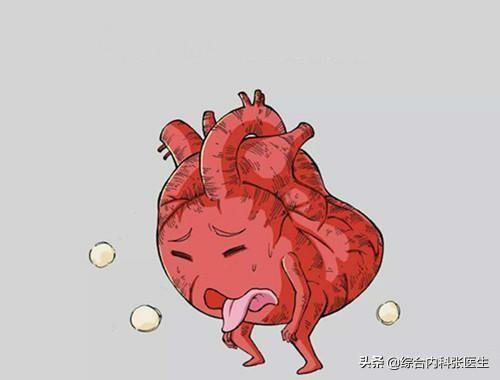
This question and answer are from the site users, does not represent the position of the site, such as infringement, please contact the administrator to delete.